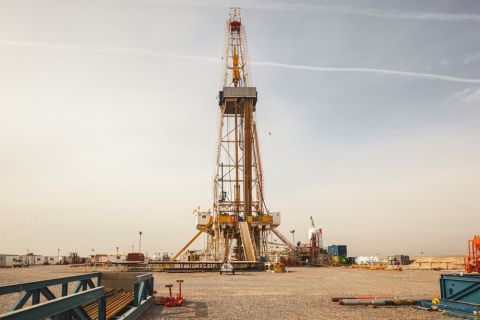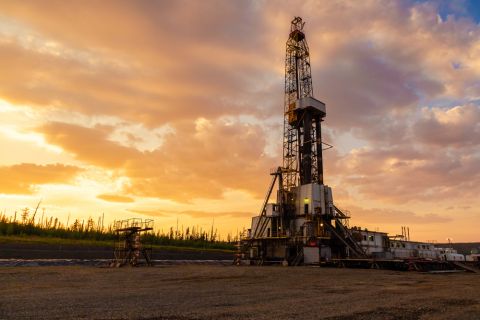Jack Belcher is a principal at Cornerstone Government Affairs, where he focuses on regulatory affairs, risk management and ESG matters within the energy and transportation sectors.

There is a clear political backlash underway against climate change policies, sustainability and ESG in the U.S. and globally as populist movements grow more vocal about their resentment of green policies and their impacts on energy prices, economics and personal freedom.
This movement is strong in the U.S., where Republicans have used hearings and the legislative process on Capitol Hill and in state capitals to focus on ESG practices in investment and lending decisions. The U.S. Supreme Court’s recent ruling overturning decades of collegiate affirmative action has further propelled ESG to the center of the nation’s political discourse.
While ESG is being debated more broadly in Congress and in Republican-controlled state capitals, energy remains the point of the spear when it comes to this backlash, not just in the U.S., but globally. Oil prices are rising again around the world as OPEC maintains aggressive supply restraint. According to the International Energy Agency, world demand is at an all-time high while supply fell in July by 910,000 bbl/d as a result of Saudi Arabia leading an OPEC+ production cut. This is not good news for western politicians looking at upcoming elections.
The situation is particularly troubling for the Biden administration. The White House has been touting recent drops in oil and gasoline prices and its successes in climate policies—taking credit for recent domestic production increases—and has begun campaigning on a theme of “Bidenomics” amid some improvement in several economic indicators. Yet, higher oil, gasoline and diesel prices, which are likely to continue their increase into 2024 and the looming presidential election, will make the economic case harder to make.
You can feel the backlash across the pond in Europe as well. In the UK, where Prime Minister Rishi Sunak’s Conservative party is down by 20 points in opinion polls, Sunak is proposing to reverse green policies enacted by former Conservative Prime Minister Boris Johnson, such as tighter emissions restrictions on cars, and is strongly opposing the Labour Party’s plan to stop new oil and gas licensing on the North Sea. More broadly, across Europe, high energy prices and a lack of stable supply is spurring debates over green initiatives and providing fuel for populist opposition campaigns.
In the U.S., the administration has fewer policy options than it has had in the past when it comes to confronting high oil prices. It has already depleted the Strategic Petroleum Reserve, which is now at its lowest level since 1983 following the sale of 300 million barrels.
Increasing domestic production is also an unlikely option. While oil production is already at all-time highs, there are some ominous signs for what lies ahead. For instance, the Baker Hughes oil and gas rig count fell in July for the eighth consecutive month, hitting the lowest level of active rigs since March 2022. Investors remain skeptical in investing in oil and gas companies, as they continue to prefer returns over growth, and higher labor, equipment and supply costs are eating into bottom lines. Finally, options for securing additional non-U.S. supplies are limited. Saudi Arabia remains committed to lower output, other OPEC nations are barely able to meet their quotas, Russia is off the table for sanctions, and sanctions remain in place for Venezuela and Iran.
Importantly, Biden administration policies and actions continue to be in conflict with increasing domestic production, despite rhetoric asking producers to pump more oil. The Bureau of Land Management (BLM) is proposing rules to significantly increase the cost of exploration and production by increasing royalty rates, fees for holding leases and bonding requirements. The administration has been dragging its feet on offshore leasing and only holds lease sales when mandated by Congress to do so. In July, the administration quietly agreed to a number of stipulations as part of a “sue and settle” agreement with environmental groups that threatens to remove millions of acres from potential future leasing in the Gulf of Mexico.
With an election year quickly approaching, candidates are scrambling to take positions that show they are on the right side of the energy and climate debate. Fundamentals seem to indicate that oil and motor fuel prices are going to be higher in 2024, and Saudi Arabia, Russia and the rest of OPEC will determine where they will stand as we edge toward election day. With high energy prices, anti-domestic oil and gas policies and a recent polling showing 57% of Americans disapproving of its handling of climate change, the Biden administration finds itself in a difficult place heading into election season.
Recommended Reading
Crescent Energy: Bigger Uinta Frac Now Making 60% More Boe
2024-05-10 - Crescent Energy also reported companywide growth in D&C speeds, while well costs have declined 10%.
Blankenship, Regens: More Demand, More M&A, More Regs
2024-05-23 - In 2024, the oil and gas industry is dealing with higher interest rates, armed conflicts in Europe and the Middle East, rising material costs, a decrease in Tier 1 acreage and new policies and laws.
The ‘Necessary Evil’ of Four-mile Laterals
2024-05-23 - While extended length lateral wells can lead to massive profits, the risk might not always be worth it. At Hart Energy’s SUPER DUG, Diamondback Energy, SLB, NOV and others weighed the risk and rewards of drilling three- and four-mile laterals.
Goodbye Manual Control: Vital Energy’s Automation Program Boosts Production
2024-07-12 - Production, ESP efficiency soared when the company automated decisions with AI at the edge.
BP and NGC Sign E&P Deal for Offshore Venezuelan Cocuina Field
2024-07-26 - BP and NGC signed a 20-year agreement to develop Venezuela’s Cocuina offshore gas field, part of the Manakin-Cocuina cross border maritime field between Venezuela and Trinidad and Tobago.





